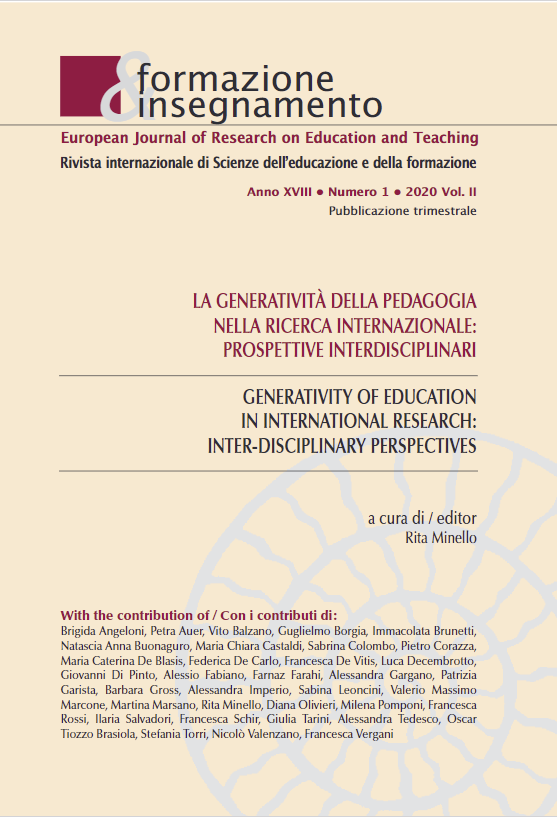Vocational guidance and placement with Third-Country national
DOI:
https://doi.org/10.7346/-fei-XVIII-01-20_35Abstract
In a globalized world, characterized by evidence of unresolved social, political, economic and environmental challenges, education is the key to build peaceful, open, sustainable and inclusive societies. The educational systems is therefore attributed the responsibility to integrate effective actions that produce transformative and generative effects. In the light of sustainable development goals, highlighted by Agenda 2030, becomes fundamental to underline a central role of pedagogy whose can materialize in educational practices promoting different competencies in the person’s education, like global and agency competencies, as a “tendency-possibility-freedom that each person has to: imagine and desire something that is not yet given; identify goals to achieve, starting from what an arrangement is; to start something new; recursively reconstruct strategies and purposes” (Costa 2013, pp. 111- 112) to enhance “the educational potential of the person” considered as “the set of skills, abilities, attitudes, functions that prefigures the meaning and the existential value of a person” (Margiotta 2017, pp. 143-146). This work presents a research project in progress, which aims to investigate the methodologies and tools managed by professionals engaged in vocational guidance with third-country nationals.
Downloads
Published
How to Cite
Issue
Section
License
Copyright (c) 2020 Pensa MultiMedia

This work is licensed under a Creative Commons Attribution 4.0 International License.
Formazione & insegnamento is distributed under Attribution 4.0 International (CC BY 4.0).
For further details, please refer to our Repository & Archiving Policy, as well as our Copyright & Licensing Terms.





